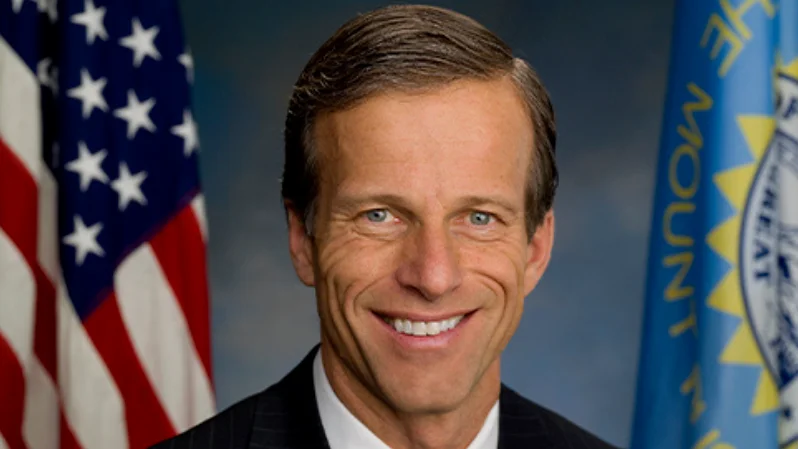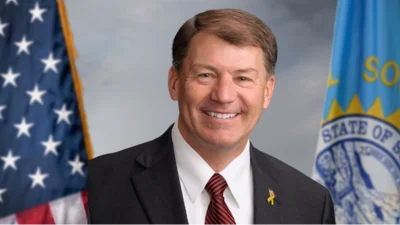Senator John Thune, US Senator for South Dakota | Official U.S. Senate headshot
Senator John Thune, US Senator for South Dakota | Official U.S. Senate headshot
The Senate is set to consider the Trump administration’s rescissions package, a measure aimed at reducing government spending. U.S. Senate Majority Leader John Thune (R-S.D.) addressed the Senate, highlighting efforts to identify and cut wasteful expenditures in federal programs.
Thune emphasized the alignment between President Trump and Senate Republicans on tackling waste, fraud, and abuse within the government budget. He stated, “Reining in waste, fraud, and abuse in the federal government is a priority shared by President Trump and by Senate Republicans. I appreciate all the work the administration has done in identifying wasteful spending. And now it’s time for the Senate to do its part to cut some of that waste out of the budget. It’s a small but important step toward fiscal sanity that we all should be able to agree is long overdue.”
The senator also discussed recent Republican legislative achievements, focusing on a bill designed to provide permanent tax relief for Americans. According to Thune, this measure builds on 2017’s Tax Cuts and Jobs Act by making its provisions permanent.
“In 2017, Republicans’ Tax Cuts and Jobs Act cut taxes across the board and had our economy firing on all cylinders,” Thune said. “Now, we’ve made those tax cuts permanent, and we’re setting up our country for a more prosperous future.”
Thune argued that middle-income Americans would see significant benefits from these changes: “It’s middle-income Americans who get the biggest benefits from the tax cuts. In fact… people making less than $50,000 a year get the biggest – the biggest – proportional benefit from this bill.” He rejected criticism that wealthy individuals or large corporations are primary beneficiaries.
He outlined several features of the new legislation: maintaining lower tax rates across income levels; increasing standard deductions; expanding child tax credits tied to inflation; introducing bonus deductions for seniors; allowing interest deductions on American-made cars; supporting parents with new investment accounts for children; enabling overtime workers such as police officers and nurses to deduct their additional pay; permitting tipped workers like waitresses to deduct tips from taxable income; providing full expensing for farmers’ equipment purchases; raising estate tax thresholds for family farms; and strengthening agricultural support programs.
Thune cited feedback from working Americans who expect these changes will provide tangible help with everyday expenses. He also referenced an analysis indicating that Uber drivers could collectively see $1 billion more in take-home pay due to tip-related provisions.
Farmers and ranchers were another focus of Thune’s remarks. He noted improvements such as increased crop insurance support, expanded conservation programs, disaster assistance enhancements, research funding boosts, permanent full expensing for equipment purchases, higher estate tax thresholds indexed to inflation—which he said would help protect family-owned farms—and other measures intended to address challenges facing rural communities.
“One Iowa farmer summed it up when he said it this way… ‘One of my goals when I started farming was to be able to pass this farm on to the next generation. I’m doing that, and I feel very good about that.’”
Thune concluded his speech by stating that these legislative actions are intended not only as immediate relief but also as long-term reforms aimed at supporting families’ financial security: “A tax code…that enables the American people to save, invest, and spend more of their hard-earned money how they see fit – rather than sending it to Uncle Sam.”




 Alerts Sign-up
Alerts Sign-up